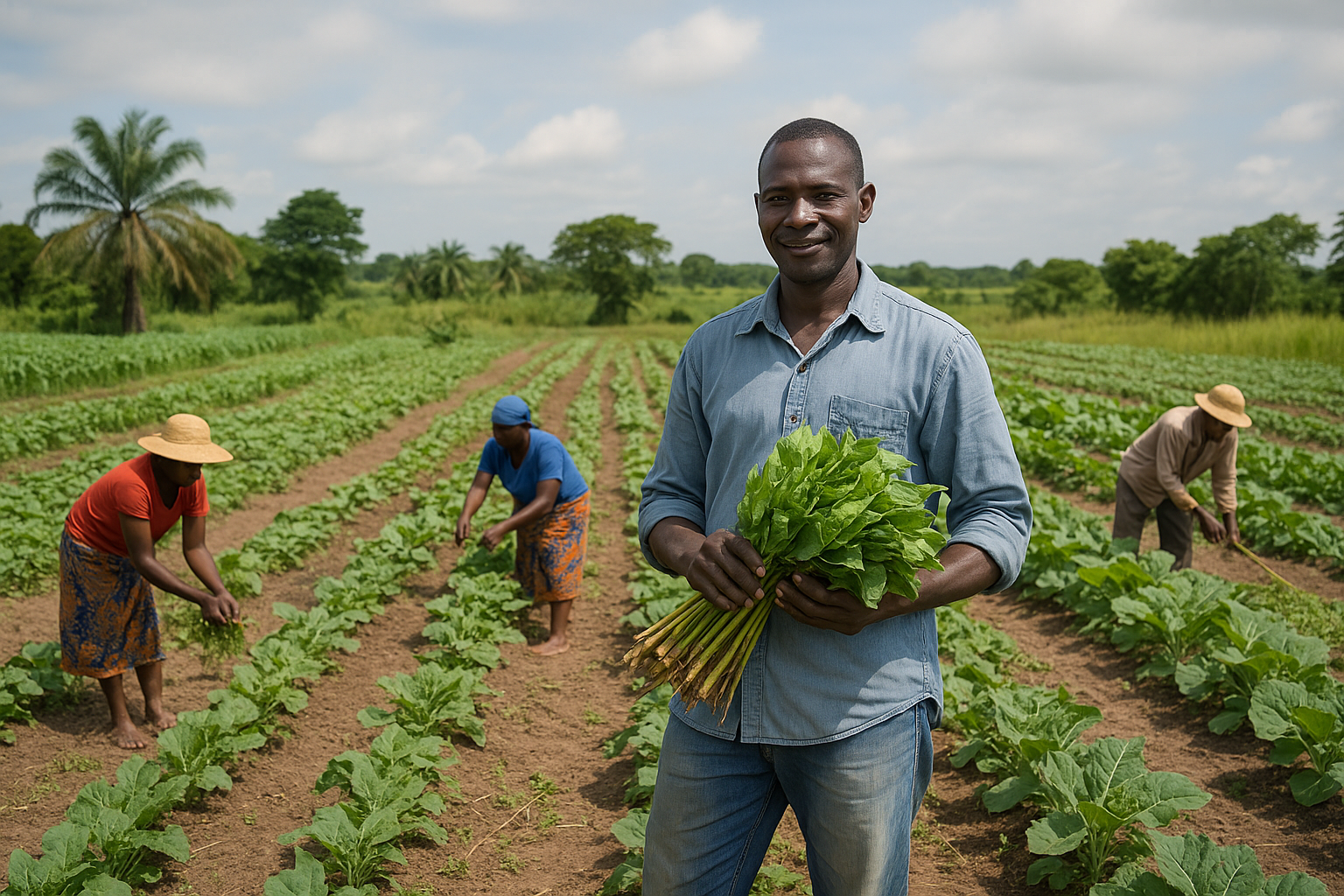Sri Lanka, World Bank Launch $100m Project to Boost Farming and Climate Resilience
At the heart of the initiative is a drive to empower smallholder farmers, who are responsible for nearly 80% of Sri Lanka’s food production.

- Country:
- Sri Lanka
Sri Lanka is set to transform its agriculture and rural economy through a new US$100 million partnership with the World Bank Group, a landmark initiative aimed at strengthening rural livelihoods, creating jobs, and helping farmers adapt to climate change. The Integrated “Rurban” Development and Climate Resilience Project is expected to benefit more than 380,000 people nationwide by modernising farming practices, expanding irrigation, and improving access to markets.
Strengthening Rural Livelihoods and Food Security
At the heart of the initiative is a drive to empower smallholder farmers, who are responsible for nearly 80% of Sri Lanka’s food production. The project will:
-
Provide direct support to 8,000 agri-food producers.
-
Upgrade irrigation and drainage infrastructure on 71,000 hectares of farmland.
-
Introduce climate-smart agriculture practices, enabling farmers to increase yields while reducing post-harvest losses.
-
Expand access to crop insurance and promote climate-resilient infrastructure, offering greater protection against droughts, floods, and other extreme weather events.
These measures are designed not only to increase productivity but also to safeguard the nation’s food supply in the face of increasingly unpredictable climate conditions.
Government Commitment to Sustainable Growth
Dr. Harshana Suriyapperuma, Secretary to the Treasury and the Ministry of Finance, Planning and Economic Development, emphasised the alignment of the project with Sri Lanka’s long-term development agenda:
“The National Policy Framework of the Government, ‘A Thriving Nation - A Beautiful Life’ has given utmost priority in attaining sustainable economic growth and development through a robust production economy. This project financed by the World Bank will complement the Government’s vision through enhancing agricultural productivity, stimulating rural development, and contributing towards safeguarding food security.”
Expanding Rural Jobs and Agribusiness
Beyond farming, the project aims to create new jobs in rural communities, particularly for youth and women, by expanding agribusiness value chains. This includes investment in processing, storage, logistics, and marketing infrastructure, which will help farmers capture more value from their produce.
The programme is also expected to attract up to US$17 million in private investment, with financial institutions playing a central role in unlocking loans for agribusinesses and supporting farmer-led enterprises.
Technology, Data, and Global Markets
Recognising the importance of competitiveness in a global economy, the project will also upgrade agriculture data systems and improve food safety standards, enabling Sri Lankan farmers to expand exports and meet international quality requirements.
David Sislen, World Bank Division Director for the Maldives, Nepal, and Sri Lanka, stressed the importance of combining innovation with resilience:
“This project is about people, government, and the private sector working together to make real improvements on the ground. By combining climate-smart farming with access to markets and private finance, we are not just helping farmers adapt to climate change—we’re helping them succeed in spite of it.”
Building on a Decade of Support
The new initiative builds on more than 10 years of World Bank Group support to Sri Lanka’s agriculture sector. Past projects successfully created 141 farmer organizations and farmer-owned businesses, boosting average farmer sales by 44%.
The International Finance Corporation (IFC), the World Bank’s private sector arm, has also played a key role in strengthening export industries such as cinnamon and coconut, offering technical expertise, financial tools, and digital solutions for small and medium-sized enterprises (SMEs).
A Shared Vision for the Future
The partnership is aligned with both Sri Lanka’s national development goals and the World Bank Group’s Country Partnership Framework, reflecting a shared commitment to building a more inclusive, competitive, and climate-resilient rural economy.
With this new investment, Sri Lanka is not only taking steps to safeguard food security and protect vulnerable farmers but also laying the foundation for a stronger, more modern agricultural sector that can thrive in a rapidly changing global landscape.
ALSO READ
PM Modi Unveils Rs 1,600 Crore Aid for Punjab's Recovery and Rural Development
Nuclear Tech to Boost Pakistan’s Agriculture, Food Security and Climate Resilience
DialogueNEXT India 2025 Brings Global Leaders Together for Food Security
Corruption Crackdown in Rural Development: Four Officials Terminated
Artificial intelligence key to advancing food security through microbiome analysis










